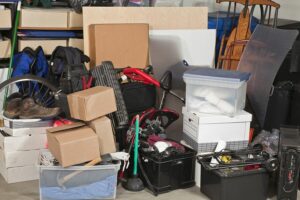Understanding OCD and Hoarding Behavior in The Elderly
Typically when you think of OCD or obsessive-compulsive disorders and hoarding, you may not connect it to your senior or anxiety. The truth is these are both related to anxiety, and your senior parent can suffer from these conditions. If you start noticing these behaviors, you may be struggling to understand how you can help change the outcome for seniors, and you may be worried about your parents. Having in-home care providers around can help with your senior’s needs and oversee the situation when you can not be there.

In-Home Care Somerset County NJ – Understanding OCD and Hoarding Behavior in The Elderly
In-home care providers can help with many things, but they may be unable to help with hoarding and OCD behaviors. These in-home care providers must be informed of your senior’s health conditions. You may also want to help come across as overbearing or placing too much stress on a senior. Often on top of in-home care services, a senior will need multiple professionals to help them reduce or control their anxiety.
Understanding general anxiety is the first step to understanding what OCD is and what triggers hoarding. These can be hard to understand if you do not suffer from one of these things, and it may be hard for you to be kind and patient when dealing with your parent.
Here is what you and in-home care providers need to know about anxiety, OCD, and hoarding in seniors.
What Is Anxiety and Why Do Seniors Struggle With It?
Anxiety disorders are classified into numerous kinds, including generalized anxiety disorder (GAD), panic disorder, phobias, and social anxiety disorder. The appearance and intensity of one’s symptoms are influenced by various things. Because late adulthood is generally marked by significant changes in health, independence, cognition, and social support, diagnosing mental illnesses in older persons may be challenging. This is especially true for seniors as well. Depression, cognitive decline/dementia, cardiovascular illness, respiratory disorders, and decreased mobility/falls are just a few diseases that often co-occur with late-life anxiety.
What Is OCD?
Obsessive-compulsive disorder (OCD) is defined by persistent, distressing thoughts (obsessions) and repeated acts (compulsions) to alleviate the anxiety caused by these ideas. This is generally not what most people think about when it comes to OCD. Most people think of being a neat freak or clean, but that is not true. OCD is not always keeping things clean, and it can form in many different ways that impact a senior’s ability to live or do activities they once enjoyed.
OCD was once linked to a form of anxiety, and although they have some similarities, they are very different and need to be treated as such. OCD can get confusing when seniors struggle with OCD and anxiety. OCD may come out as rituals, and although it may seem fine for you, it is not fine for the person struggling with the thoughts.
What Is Hoarding?
Another behavioral pattern that is strongly related to anxiety and OCD is hoarding disorder, which is defined by excessive acquisition of objects and trouble parting with them. Hoarding often results in crowded, unsafe, and unhygienic living circumstances that may be full, with only tiny routes meandering among mounds of debris. This can be exceptionally dangerous for a senior to live in. Losing an item can feel like a loss of identity, which can lead to extreme anxiety.
If you or an aging loved one are considering hiring professional In-Home Care Services in Somerset County NJ, please talk to the caring staff at Generations Home Health Care today. Providing Home Care in Somerset, Essex, Union, Morris, and Hunterdon Counties. Call us today at (908) 290-0691 or (973) 241-4534.
- How to Stay Connected With a Senior Who Has Alzheimer’s - April 17, 2024
- Spring Cleaning Tips for Seniors - April 4, 2024
- How Personal Care Aides Can Help Prevent Infections In Seniors - March 20, 2024





